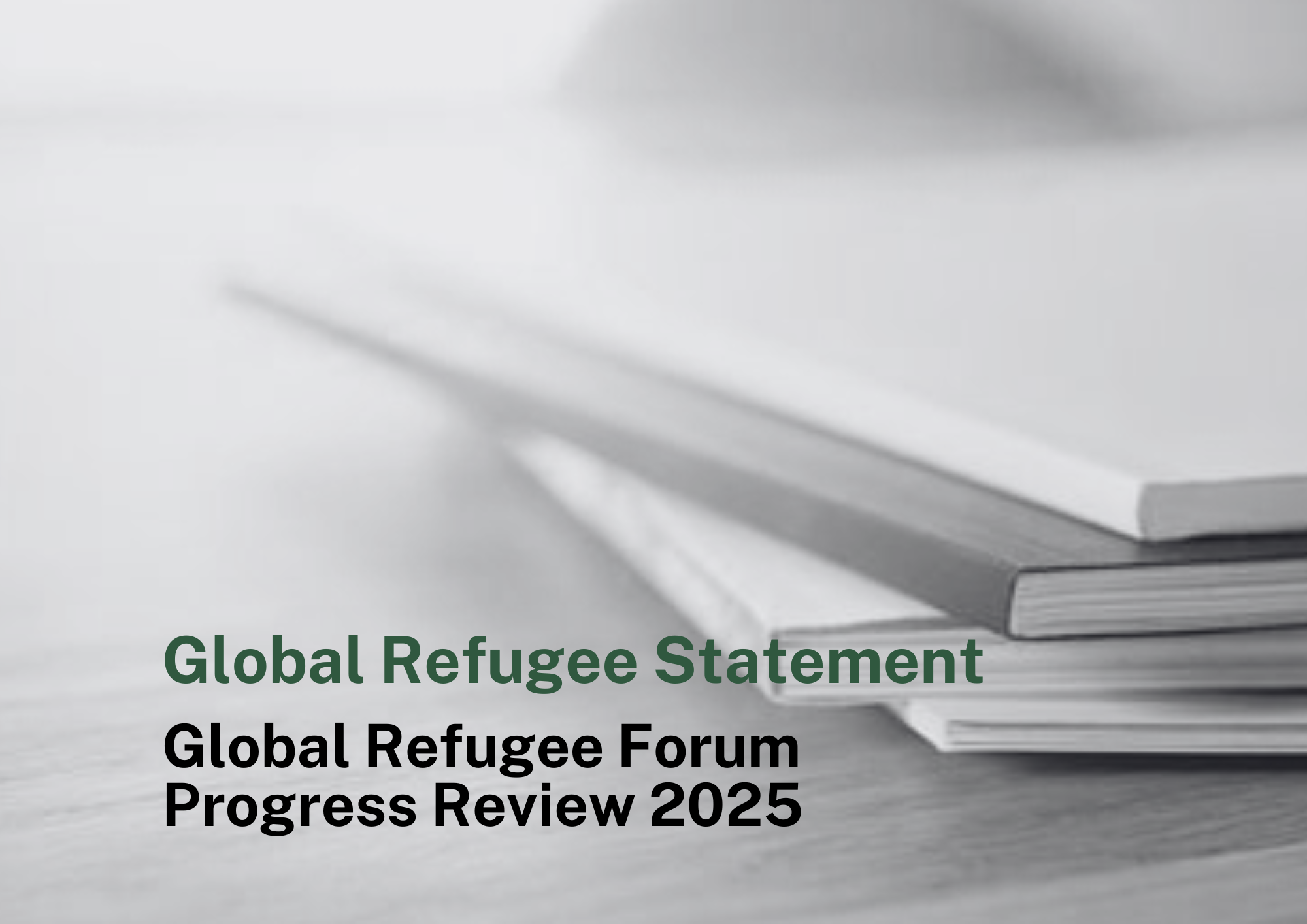APRRN CONDEMNS THE REFOULEMENT OF A ROHINGYA REFUGEE WOMAN FROM INDIA AND THE ESCALATING RISK TO OTHER ROHINGYA REFUGEES IN INDIA
12 May 2022
APRRN condemns the refoulement of a Rohingya refugee woman from India and the escalating risk to other Rohingya refugees in India
Bangkok, 5 April 2022
APRRN condemns the recent refoulement of a Rohingya refugee woman from India to Myanmar in violation of both international and Indian domestic law. The deportation was carried out despite an order of the Manipur State Human Rights Commission staying the deportation, and an ongoing case before the Supreme Court of India. APRRN notes with grave concern the arrests of other Rohingya refugees and the more than 200 in detention at imminent risk of refoulement. APRRN calls on the Government of India to respect the rule of law and immediately cease arbitrary arrests, indefinite detention, and refoulement.
The refoulement of Hasina Begum
APRRN is gravely concerned for the safety of Hasina Begum, a 36-year-old Rohingya woman, mother of three children, refouled to Myanmar on 22 March 2022.
Hasina Begum and her family are UNHCR-recognized refugees in India. Yet, on 22 March 2022, Hasina was deported alone to Myanmar in violation of Indian domestic and international law. Hasina had already been separated from her children and husband for over a year, having been arrested during police raids on 6 March 2021, and sent with 170 other Rohingya refugees to Hiranagar holding center in Jammu. The deportation was formally undertaken with the involvement of the authorities in Myanmar. Her husband and children were not informed of the deportation and only learned of it from a third party. Hasina is currently confirmed to be in Myanmar, but because the family is from a village in the far north of Maungdaw completely destroyed during the 2017 genocide that resulted in the forced expulsion of the Rohingya from Myanmar, it is unclear to where she will return. Her situation is made yet more difficult due to current heavy fighting in her home area making the journey to her former home perilous.
In refouling Hasina, the Indian authorities defied an order of the Manipur State Human Rights Commission staying her deportation — noting that it would violate her Constitutionally protected right to life — and ignored a case pending before the Supreme Court challenging a mass deportation order against the Rohingya. The actions by the Indian authorities demonstrate a complete disregard for human life and the rule of law. Hasina’s deportation also violates India’s obligations under the international conventions it has ratified, including the International Covenant on Civil and Political Rights and the Convention on the Elimination of All Forms of Discrimination Against Women.
India is under an obligation not to extradite, deport, expel, or otherwise remove a person from its territory to the territory of another State where there are substantial grounds for believing that there is a real risk of irreparable harm. The principle of non-refoulement is recognised and applied by the courts in India as a rule of customary international law.
Hasina is at real risk of persecution, torture, and other serious human rights violations. Because of the actions of the Government of India, she has been placed at risk of irreparable harm.
Rohingya refugees in India are at grave risk of forced return to Myanmar
APRRN is concerned not only about Hasina, but for other Rohingya refugees seeking protection in India, given India’s willingness to violate its own and international law in removing forcibly refugees from its territory.
India’s long tradition of providing sanctuary to refugees, including Tibetans, Sri Lankans, Afghans and Bangladeshis, has been compromised by recent actions against the Rohingya. In August 2017, the Indian government announced plans to deport ‘illegal foreign nationals’ including an estimated 40,000 Rohingya, at least 16,500 of whom are registered with UNHCR. The government contended that all Rohingya may be subject to deportation, regardless of registration status or international protection standards. Since October 2018, the Indian authorities have returned to Myanmar at least 20 other Rohingya (16 male and 4 female), all of whom had been in prolonged detention, often without access to UNHCR. And, in April 2021, there was an attempt to forcibly return a Rohingya girl to Myanmar alone after her family had fled to a refugee camp in Bangladesh.
Hundreds of Rohingya women and children have been detained in India’s shelter homes for years now while their male counterparts are held in prisons indefinitely even after the completion of their sentences. The use of arbitrary and indefinite detention is rampant and an issue of grave concern.
India’s treatment of Rohingya refugees, and its attempt to refoul them to Myanmar, come at a time of mounting evidence that Myanmar’s military junta has committed genocide. A UN Fact-Finding Mission to Myanmar concluded in its report that the Myanmar security forces have committed crimes against humanity and that “there is sufficient information to warrant the investigation and prosecution of senior officials in the Tatmadaw chain of command, so that a competent court can determine their liability for genocide in relation to the situation in Rakhine State.”
Hasina Begum was refouled on the same day that the US State Department added its voice, determining that the violence committed against the Rohingya minority by Myanmar’s military amounts to genocide and crimes against humanity.
APRRN is especially concerned, given the cooperation between the authorities of India and Myanmar in the return of Hasina, for more than 200 Rohingya refugees still detained in the same holding center from which Hasina was forcibly returned.
APRRN urgently calls on the Government of India to:
- Immediately cease the deportation of Rohingya refugees and people seeking asylum to places where they are likely to be at risk of harm.
- Immediately cease the arrest and detention of people seeking asylum and refugees who are under the protection of the United Nations or are seeking the protection of the United Nations.
- Retract the Ministry of Home affairs advisory dated 8 August 2017 to detain and deport all Rohingya refugees in India.
- Release the arbitrarily detained Rohingya refugees in Jammu and other parts of the country, especially those who have served their sentences.
- Respect the rule of law and India’s obligations under domestic and international law.
The Asia Pacific Refugee Rights Network (APRRN) is a network of over 200 active civil society organisations and individuals from 29 countries committed to advancing the rights of refugees in the Asia Pacific region. While APRRN statements are prepared in consultation with members, they do not necessarily reflect the views of all APRRN members. For further information or comment, please contact Chris Eades, APRRN Secretary General, at sg@aprrn.org.
Statement in PDF here.
Recommended

Dec. 15, 2025
Global Refugee Statement – Global Refugee Forum Progress Review 2025
Around the world, families are running out of places to go. The scale of global displacement remains extraordinarily high, with 117.3 million people forced to flee, not because they chose to move, but because staying meant persecution, violence, or the collapse of their basic rights and safety. Behind every statistic is a person who once had a home, a community, and a future rooted in the ordinary rhythms of life. This reality reminds us that the systems designed to protect people in times of crisis are under severe strain.

Sept. 22, 2025
Upholding Not Undermining International Law Civil Society Open Letter to States
In advance of this week’s UN General Assembly High-level meeting, speeches by Heads of State and Government and reported efforts to enlist UN Member States in an attempt to undo international legal protections for refugees, 271 civil society organisations released an open letter to UN Member States calling on them to uphold, preserve, strengthen, and celebrate international refugee, human rights, and humanitarian treaties—and to reject efforts to undo or undermine legal norms.

July 21, 2025
APRRN deeply saddened by the loss of Ravi Hemadri
For over 25 years, Ravi dedicated his life to community mobilisation, training, advocacy, and research. Our community of practitioners and advocates working on the rights of refugees and other vulnerable people on the move in Asia Pacific has lost a friend and colleague. But his legacy will continue to inspire those who worked with him. Our heartfelt condolences go out to his family and loved ones.